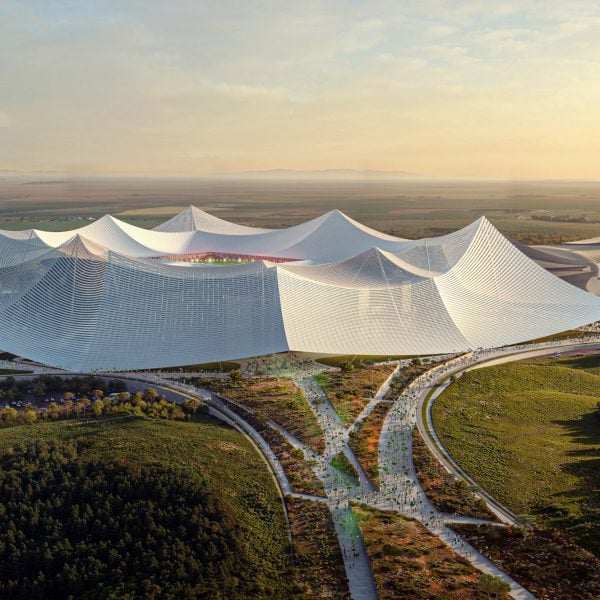Architecture studios Oualalou + Choi and Populous have released renders of the 115,000-seat Grand Stade Hassan II stadium, which is being built in Morocco for the 2030 World Cup.
Designed to “become one of the great stadia of the world”, the stadium is set to be built in the city of Benslimane, around 40 kilometres from Casablanca.
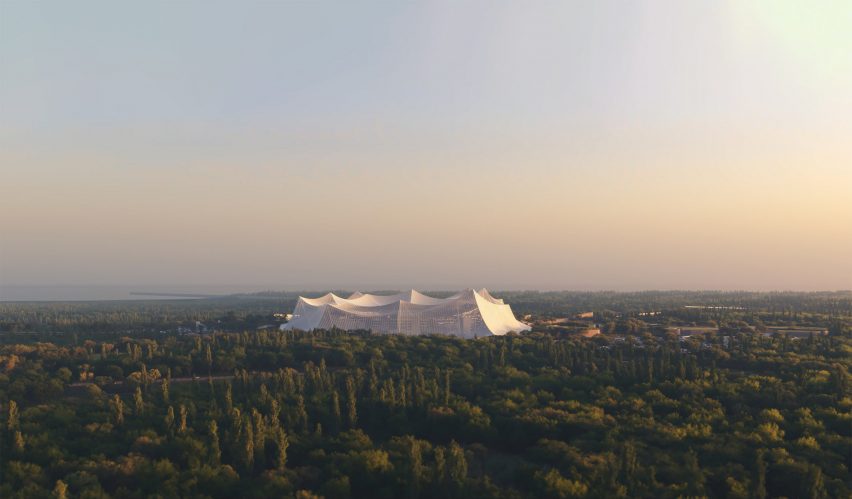
Planned to host games during the upcoming 2030 World Cup, it will be the world’s largest football stadium if completed with a capacity of 115,000.
“The Grand Stade Hassan II will be a truly iconic, landmark venue for Morocco and for football itself, that will become one of the great stadia of the world,” said Populous managing director for the EMEA region Christopher Lee.
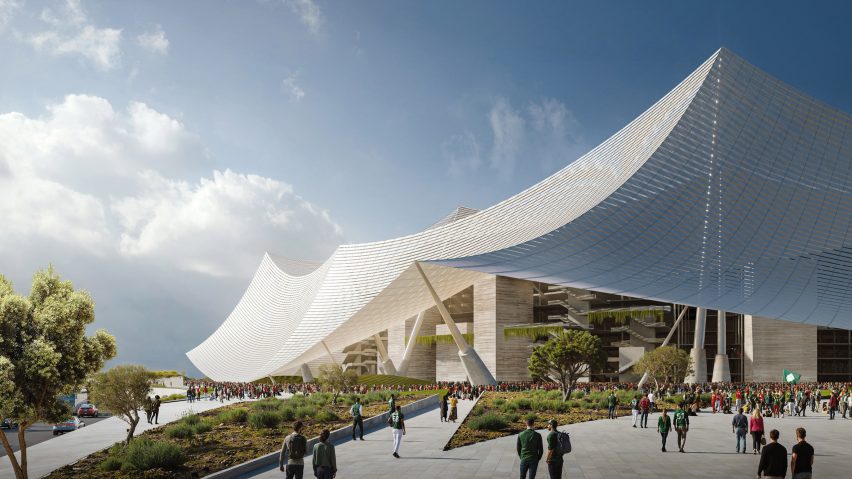
Named Grand Stade Hassan II after the former king of Morocco, the stadium will sit below a giant, tented roof informed by traditional Moroccan cultural festivals, known as moussem.
Surrounded by forest, the stadium’s translucent roof will be made from “a unique aluminium lattice”, lifted at the edges to create a series of monumental entrances that will house botanical gardens.
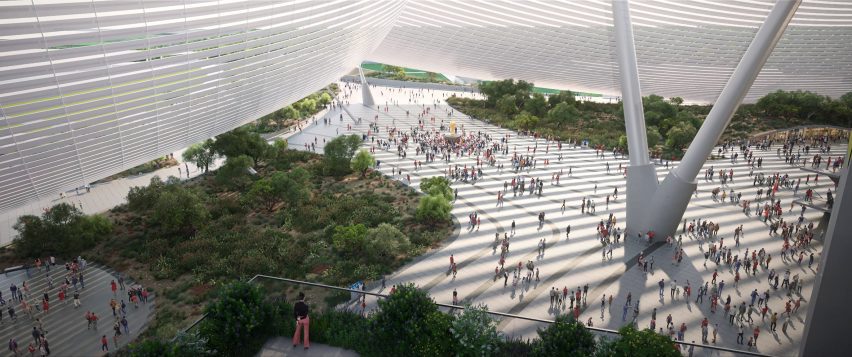
The Grand Stade Hassan II is deeply rooted in Moroccan culture, with its traditions and contemporary expressions,” said Oualalou + Choi founding partner Tarik Oualalou.
“It is rooted in ancient and primordial figures: the moussem, the tent and the garden, as well as the topography and landscapes of Morocco.”
“It’s a generous space, open to the world and respectful to the nature it protects,” he continued.
“The Grand Stade Hassan II de Casablanca is the embodiment of the great tradition of Moroccan hospitality.”

Described as “colossal”, the stadium bowl will have three tiers of seating on each of the main stands. Between these, there will be five levels of hospitality for VIPs including a royal box.
At each end of the stadium, two large stands will each hold 29,500 spectators in single tiers.
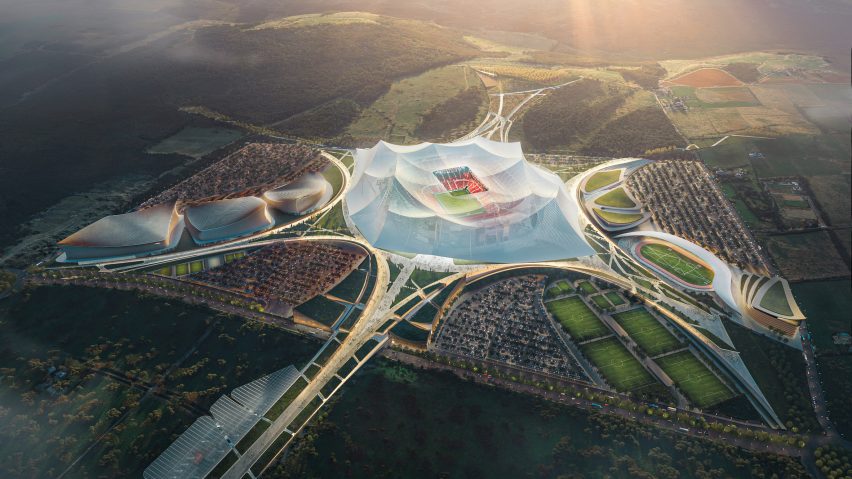
The stadium is one of six in Morocco that will host games during the World Cup in 2030.
Along with Morocco, the World Cup will be hosted in three stadiums in Portugal, 11 in Spain – including Real Madrid’s recently revamped Santiago Bernabéu – and one each in Uruguay, Paraguay and Argentina.
Saudi Arabia recently revealed the 15 stadiums that will host games during the 2034 FIFA World Cup.

